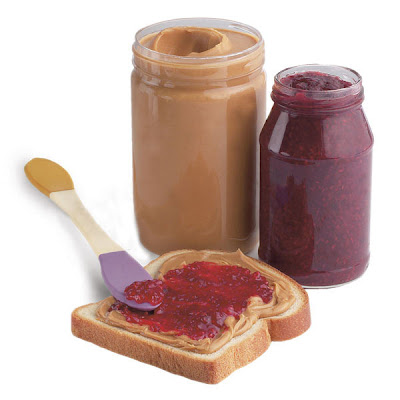
I was tired last night, so I went to bed a little earlier than usual. The problem with that is that I can never sleep through the night and wake up really early. Being too lazy to get up, I waste the time laying there thinking about stuff. So this morning it came into my head to do a "living the lifestyle" class for our next raw food group. (We started having a little class for some people who have been asking what we do. It started two weeks ago. We're now working on class #3.) I had planned on doing something else, so it was interesting that I was prompted to do this, but it makes sense, and it will certainly be helpful to the new folks who are coming. Of course, a lifestyle class involves the foods that serve as lifesavers, so we can never get away from the food. One of the themes that ran through the Glaser Farms class was that Tracy wanted to give us recipes or ideas for things that would keep us away from foods that detour us from our goals to eat healthy. I had never thought of that in that way although, of course, I had employed some of the strategies in a survival kind of context. To hear her put it that way changed the perspective a little bit.
Example: yesterday I heard Wyatt going to the refrigerator looking for food about every 1/2 hour. I realized this was because he was not so much hungry as wanting something that was not there. I remembered what Tracy had said, so I looked at my notes from Glaser Farms and went out to make him Tracy's version of the peanut butter and jelly sandwich. Of course it is not a sandwich at all (which he quickly pointed out), but he enjoyed it none the less, and I think it satisfied some of the restlessness in his stomach. He was still scavenging a half hour later, but he went for another apple instead of looking longingly in the fridge for something that wouldn't have been good for him.
The desire for previously enjoyed foods is very real until we actually have some of them and realize we have been duped into wanting something that is not good for us. The memory of it is much more enjoyable than the actual substance. That is the nature of addictive substances in general. On the other hand, living foods are much more enjoyable than their memory. That is an odd contrast between good and evil if one wants to look at it in a spiritual way. We know that the harmful foods detract from our spirituality (or do we really know that?), but we want them anyway. Once taken, sorrow and remorse set in as we feel bad physically and emotionally knowing we have failed again. Living foods do the opposite: we feel great physically, emotionally, and spiritually. I think that when we start talking about the spiritual and emotion aspects of food, that is where we lose a lot of people. They think we have gone off the deep end.
I am starting to realize that choosing how much of my food to eat in its raw, living foods state is more than a number. I want to take as much of the best food I can into my body (within the realm of what it needs) while avoiding as much of the foods that detract from my health as possible. For example, when a recipe calls for maple syrup, am I going to avoid it because it is cooked, or am I going to think about whether it serves as a vehicle for a more nutritious food that I might not otherwise eat, or is it just an empty excuse for a food that won't do me any good. Conscious eating is very difficult for those of us who have been doing it unconsciously for so long. It requires a lot of discipline to just ask the necessary questions, no less to stop the insanity of putting harmful foods in our bodies.
Of course, the living foods lifestyle is more than food, thankfully. Because we spend so much time eating each day, and the rest of our day is divided up between so many other kinds of actiivities, we might tend to think about it more than we should. I think that is temporary until we can do the conscious things more unconsciously. Until then, it is what it is.